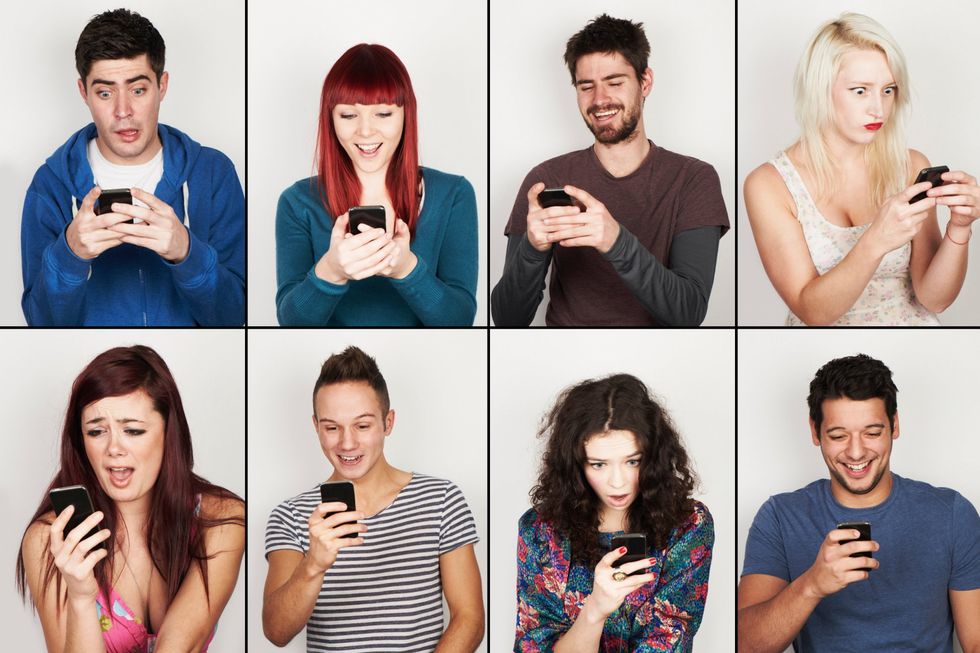On Aug. 22, 2013, actress and writer Charlene deGuzman uploaded "I Forgot my Phone" to YouTube and put on display a major problem wired into the online generation: we're always connected.
The short film, written by deGuzman and directed by Miles Crawford, stars a woman (Guzman) whose life is interrupted by the world of smartphones and social media.
The film is comprised of short moments in the woman's day in which people around her are scrolling, typing and sharing on their smartphones. A woman opts to take a selfie with a freshly poured drink instead of enjoy a toast with her friend. Concertgoers stand at a show swaying and watching their favorite band through the screens of their brightly lit iPhones.
While the moments depicted are staged, there is so much realness in each scene. How many times has a lunch with friends turned into a group session of checking Instagram and Twitter? How many times have you felt the urge to share a moment on social media?
"I Forgot My Phone" slaps us with a truth we do not see: we are living life via our smartphones. And that's not normal.
In her TED Talk titled "Connected, but Alone?," Sherry Turkle, Abby Rockefeller Mauzé Professor of the Social Studies of Science and Technology at the Massachusetts Institute of Technology, echoes the message of "I Forgot My Phone."
"Over the past 15 years, I've studied technologies of mobile communication and I've interviewed hundreds and hundreds of people, young and old, about their plugged in lives," said Turkle.
"And what I've found is that our little devices, those little devices in our pockets, are so psychologically powerful that they don't only change what we do, they change who we are. Some of the things we do now with our devices are things that, only a few years ago, we would have found odd or disturbing, but they've quickly come to seem familiar, just how we do things."
This past year, I was introduced to the wonderful world of Snapchat, an app that allows users to message photos and videos to their friends. It was only recently, however, that I realized how unhealthy the photo-sharing service can be. I messaged just about every second of my day to my friends, thinking a moment didn't exist unless I shared it.
DeGuzman and Crawford's film captures perfectly the online generation's obsession with constantly being connected– and the alarming problem attached to that obsession. And with over 40 million views, the video seems to be resonating with audiences.
Our use of smartphones is redefining human connection, maybe for the better but probably for the worse. With each status update, text sent or photo taken, the intimacy of a moment is lost completely– your friend's smile as she opens her Christmas gift, the flirty giggle of your partner as he or she throws his or her arms arms around you, the way your baby plants her head in your shoulder at 8 p.m.
You may have 23 videos stored in your photo library to always remember your friend's 21st birthday celebration or the look on your fiancee's face when you asked her to marry you, but the real beauty of those moments rests in simply living in them.























